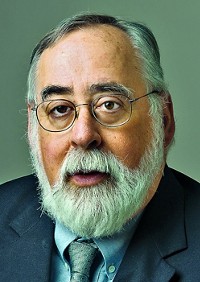Advertisement
Grab your lab coat. Let's get started
Welcome!
Welcome!
Create an account below to get 6 C&EN articles per month, receive newsletters and more - all free.
It seems this is your first time logging in online. Please enter the following information to continue.
As an ACS member you automatically get access to this site. All we need is few more details to create your reading experience.
Not you? Sign in with a different account.
Not you? Sign in with a different account.
ERROR 1
ERROR 1
ERROR 2
ERROR 2
ERROR 2
ERROR 2
ERROR 2
Password and Confirm password must match.
If you have an ACS member number, please enter it here so we can link this account to your membership. (optional)
ERROR 2
ACS values your privacy. By submitting your information, you are gaining access to C&EN and subscribing to our weekly newsletter. We use the information you provide to make your reading experience better, and we will never sell your data to third party members.
Physical Chemistry
Evolution Yes, Creationism No
Booklet says evolution, but not creationism, should be part of public school science curricula
by Stu Borman
January 21, 2008
| A version of this story appeared in
Volume 86, Issue 3
SEVERAL LOCAL SCHOOL boards in Florida recently passed resolutions urging that state education standards be revised to say that biological evolution is not a proven fact. Supporters of these measures propose that creationism or "intelligent design" be included in public school science curricula in addition to evolution. Those who disagree with such proposals will find renewed support for their views in a publication issued earlier this month by the National Academy of Sciences.
At a Jan. 4 press conference at NAS headquarters in Washington, D.C., scientists and science administrators released and discussed "Science, Evolution, and Creationism," the latest edition in a series of publications the academy has issued since 1984 on the controversy over public schools teaching evolutionary biology and creationist ideology.
The booklet describes evolution, notes that scientific evidence from many fields has confirmed evolution experimentally, and argues strongly against the inclusion of creationism in public school science curricula, as has been proposed in Florida and a number of other states. The findings of a December 2007 survey on voters' views on evolution and creationism were also made available at the session.
According to biological evolution, living organisms, in all of their diversity, developed naturally over time. Creationism is the belief that they were instead created by a supernatural being. Intelligent design is a form of creationism that proposes that living things are too complex to have evolved naturally and were instead created by some form of intelligent agent, but not necessarily one associated with a particular religion.
Earlier publications in NAS's evolution and creationism series were somewhat specialized, whereas the new version was written in a more accessible style, with assistance from a science writer. It is designed to be read by not only scientists but also the general public, including students from elementary school through college age. The publication was prepared by a committee chaired by evolutionary biologist Francisco Ayala of the University of California, Irvine.
THE BOOK MAKES two main points, Ayala said at the press conference: "There is no contradiction between evolution and religious faith, [and] the science of evolution is a very advanced discipline supported by an enormous amount of evidence."
Committee member Bruce Alberts, professor of biochemistry and biophysics at UC San Francisco, noted at the session that authorities in states like Florida "have threatened to have creationist material taught in science class along with evolution, or to have evolution not taught at all. ... This is a document that can be used by local scientists to help them deal with such local education issues."
Several candidates for the U.S. presidency have recently declared themselves to be believers in creationism. "I would worry that a president who didn't believe in evolution arguments wouldn't believe" that smoking is bad for health or that global warming is occurring, Alberts said. "This is a way to lead our country toward ruin." Alberts was recently named the next editor-in-chief of Science.
Proteomics specialist Gilbert S. Omenn of the University of Michigan Medical School, Ann Arbor, another committee member, said, "We are very keen that people understand the nature of science and the scientific method, which is not about accepting on faith a statement ... or a scriptural passage. It's about exploring nature."
If people want to discuss creationism or intelligent design, "there is ample opportunity in their homes, places of worship, and other places in our society," Omenn said. "And there's even the opportunity if schools so decide ... to discuss these as matters of political science or history or philosophy or the history of ideas and religions." But public schools are not the place to present such ideas as being scientific in nature, he added.
The 70-page "Science, Evolution, and Creationism" booklet and an accompanying eight-page summary brochure are available for purchase or free download at www.nap.edu/catalog.php?record_id=11876.
The survey of 1,000 likely voters made available at the press conference revealed that the type of evolution science taught in schools is fully accepted only by about one-third of respondents. Sponsored by 17 scientific societies, including the American Chemical Society, the survey found that 32% of respondants believed humans and other living things evolved by natural processes, 31% believed they were created in their present form, 21% thought they evolved but with guidance from a supreme being, and 16% didn't know or wouldn't say.
According to the survey report, respondents expressed largely favorable opinions about scientists, leading to the conclusion that "the scientific community has an important role to play in encouraging public support for science education."





Join the conversation
Contact the reporter
Submit a Letter to the Editor for publication
Engage with us on Twitter